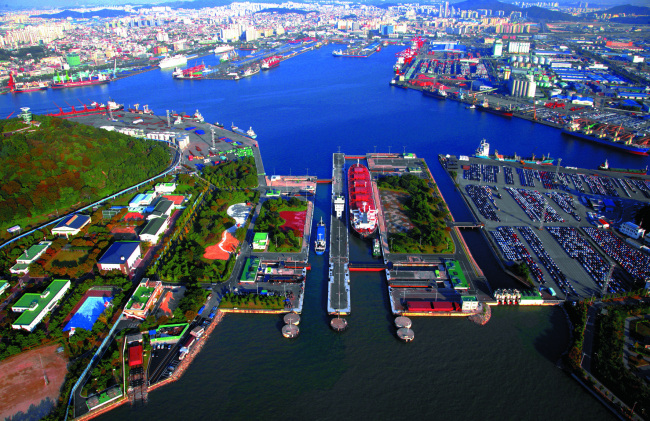 |
Songdo, a newly developed international business district of Incheon, aims to host the secretariat of the Green Climate Fund. (Incheon Metropolitan City) |
Six cities in race to host Green Climate Fund; decision expected on Friday
Korean officials are making a final pitch to host a U.N.-operated fund which will be the single largest source of financing for global efforts to fight climate change.
Songdo, a newly developed international business district in Incheon, is vying with five other cities to host the secretariat of the Green Climate Fund.
A decision is expected during a meeting of the fund’s board members in Songdo on Friday.
The other five competitors are Bonn in Germany, Mexico City, Windhoek in Namibia, Warsaw and Geneva. Korean officials say it looks like a race amongst Bonn, Geneva and Songdo.
“It is a tough competition, but we’re hopeful,” a government official involved said.
The winner of the race will be chosen by a majority vote of 24 members of the fund, equally spread between developed and developing countries during their Oct. 18-20 gathering in Songdo.

If a candidate secures more than 50 percent of votes cast, that candidate wins. Otherwise, the candidate with the fewest votes is eliminated and a new round of voting takes place. This process continues until one candidate has a majority.
The selection is subject to a final endorsement at the United Nations Climate Change Conference in Doha, Qatar, at the end of the year.
Korea’s central government, as well as Incheon city, is making a final push to secure more votes.
A task force team, headed by the vice finance minister, is at the vanguard of the efforts, while Prime Minister Kim Hwang-shik, Finance Minister Bahk Jae-wan and Environmental Minister Yoo Young-sook are helping out with their diplomatic networks.
Han Duck-soo, the nation’s former envoy to the United States and now head of Korea International Trade Association, is leading a private committee to support Incheon’s bid.
Incheon, meanwhile, is all out to drum up public support for its bid and create a welcoming mood for GCF board members soon to arrive in the city.
“Korea has done its utmost to honor the United Nations Framework Convention on Climate Change (UNFCCC). We’re confident that we can make further contribution to the global community by bridging a gap between developing and developed countries,” Prime Minister Kim said during a forum on green growth in Copenhagen last week.
He attended the forum, along with Incheon Mayor Song, to explain Korea’s bid to host the GCF to the participants.
Bridging the gap between developed and developing worlds on environmental matters is, in fact, the main idea behind the GCF.
First proposed in 2009 and established in December 2011, the fund is an operating entity of the UNFCCC to transfer money from rich countries to poor countries in order to help the latter cut greenhouse gas emissions and adapt to the impacts of climate change.
It is envisioned to be the single biggest source of financing in global efforts to combat climate change. Rich countries have pledged to commit $100 billion per year for the fund by 2020.
Key details of the fund are yet to be drawn up, such as who should run it and how it will operate and raise funds.
Its secretariat, to be established early next year following the decision on the head office location, will have 300 to 500 employees in the initial period, which will rise to several thousand once the fund gets up and running.
If it comes to Incheon, it will help balance international environmental organizations which are mostly based in Europe and North America and will also be a display of the fund’s commitment to supporting developing countries, Korean officials claim.
The country has committed the provision of free office space ― 15 floors of a 33-story building exclusively built for international agencies, $2 million this year to help the secretariat’s establishment and another $7 million later to assist its operation, among others.
Aside from such direct support to the GCF secretariat, Korea has pledged $40 million to the fund, to support developing countries in green efforts.
On Sept. 27, the National Assembly unanimously passed a motion that pledges full support for the GCF’s successful establishment, should it come to Korea.
“Korea, a country which has risen to prosperity from being one of the world’s poorest countries and is now pursuing a greener path, can play a role of a bridge between the developed and developing worlds,” they said.
By Lee Sun-young (
milaya@heraldcorp.com)









